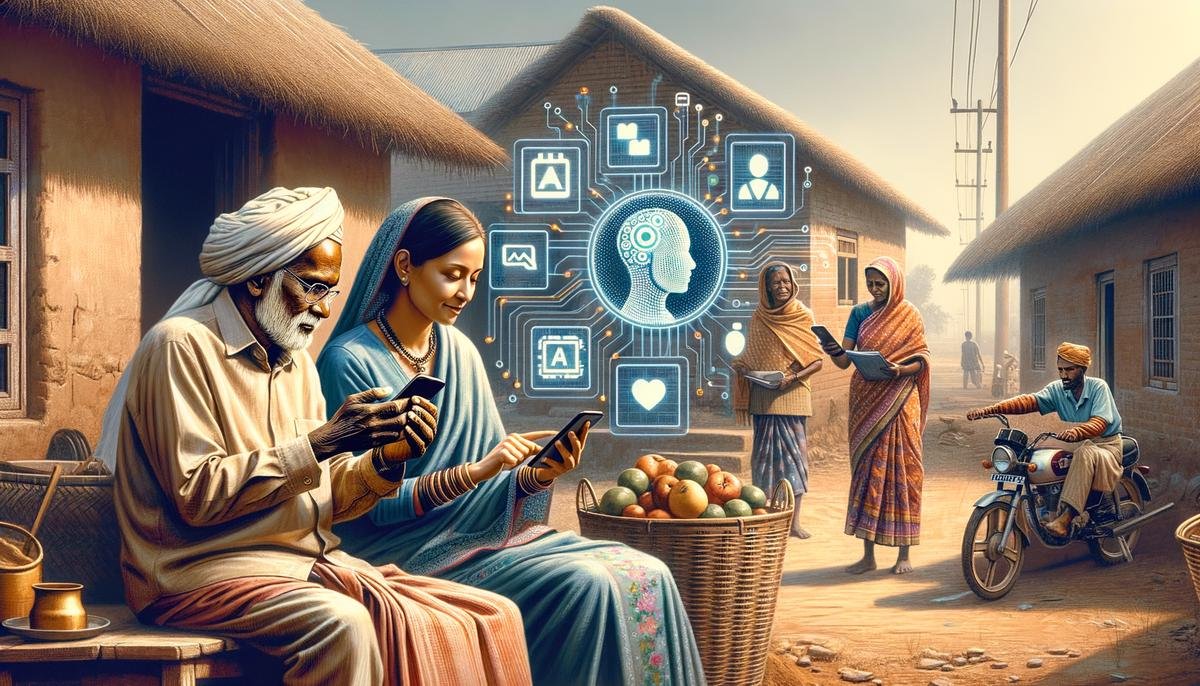As technology advances, the potential for AI to reshape societies is significant. The challenge lies in making these advancements accessible to all, bridging gaps rather than widening them. This journey involves cooperation, education, and ethical considerations, aiming for a future where technology benefits everyone.
Equitable Access to AI Technologies
Technology has always offered benefits unevenly, with those having access gaining advantages over others. Today, AI presents both opportunities and risks for increasing this divide.
Governments and private companies need to collaborate to prevent the AI gap from widening. High-income nations should share technology rather than restrict access. International cooperation is key to ensuring broader access to AI benefits, especially for countries with less developed infrastructure.
Efforts to distribute AI benefits require strategic planning. Infrastructure investments are essential, as basic digital foundations must be in place for AI implementation. Skills training is equally crucial. Workers need to understand digital technologies to remain employable in an AI-driven economy.
The private sector has a role to play in promoting technology adoption. Partnerships between governments and businesses can address funding gaps and foster tech solutions. Balanced regulations are needed to ensure ethical AI use while allowing innovation.
In underserved regions, focusing on innovations like generative AI and explainable AI could be particularly impactful. These technologies can empower educators, small businesses, and build trust in AI systems.
Creating an AI ecosystem with fair access requires collective effort, whether through resource pooling or policy-making that pushes for equitable distribution.

AI's Role in Reducing the Digital Divide
AI has the potential to bridge the digital divide by bringing information, learning, and financial services to underserved areas. AI-driven tools can transform smartphones into educational and financial platforms, providing opportunities for learning and economic growth.
In education, AI-enabled platforms can adapt to individual learning styles, creating personalized learning experiences. This technology can support both students and teachers, automating administrative tasks and allowing educators to focus on teaching.
Economically, AI can empower small businesses with insights and tools previously only available to larger companies. Entrepreneurs can optimize operations and connect with customers more effectively using AI-powered platforms.
AI-driven fintech solutions can promote financial inclusion by using alternative data for credit scoring, opening up financial services to those previously excluded from traditional banking systems.
These advancements in education and economic opportunity demonstrate AI's potential to level the playing field and create shared opportunities across different regions.

Challenges of AI Implementation in Developing Countries
Developing countries face significant hurdles in AI adoption. Infrastructure deficits, including unreliable internet and power supply, pose major challenges. Without these basics, AI implementation remains limited.
The skill gap is another critical issue. There's often a lack of digital literacy and technical expertise in the workforce, necessitating substantial investment in education and training.
Job displacement is a concern as AI-fueled automation increases. This anxiety is particularly acute in sectors vulnerable to automation. Government policies need to address these challenges through retraining programs and social protection measures.
To move forward, investments in robust digital infrastructure are crucial. Governments must prioritize long-term digital development. Encouraging local innovation is also key. Developing countries need to foster their own tech ecosystems that address regional needs with tailored solutions.
Support for local startups through incentives like tax breaks or seed funding can spur a cycle of growth and opportunity. While challenging, transforming AI from a distant concept to an everyday reality in developing countries is achievable through focused efforts in education, infrastructure, and innovation.

Ethical and Inclusive AI Development
Ensuring ethical AI development is crucial as the technology increasingly influences real-world decisions. Biases in AI can lead to discriminatory outcomes in areas like hiring, lending, and law enforcement.
To address this, AI systems need diverse data inputs that reflect varied perspectives and experiences. This diversity helps AI better understand and respond to the complexities of the world.
Developing a framework that combines transparency with accountability is essential. AI systems should be understandable and subject to checks and balances. Stakeholder involvement from various backgrounds is necessary to create rules that effectively govern AI systems.
By focusing on ethical and inclusive AI development, we can create systems that respect boundaries, promote inclusivity, and serve a global audience. This approach not only fosters innovation but ensures that the benefits of AI are equitably distributed.

Global Cooperation for AI Governance
Effective AI governance requires international cooperation. A coordinated effort is needed where all nations contribute to shaping global AI policies and standards.
High-income countries should share technological knowledge and experiences with others. Technology transfer is crucial, enabling the spread of advanced methods and practices across economies.
Capacity building is essential, focusing on training and education to develop AI talent globally. This approach helps countries build their own AI capabilities rather than relying solely on external expertise.
Establishing universal standards for AI deployment is necessary to ensure alignment with shared values. These standards should promote transparency, accountability, and fairness in AI use and governance.
Creating such standards requires collaborative efforts among countries, involving discussions and agreements on AI's role in our shared future. The goal is to develop AI in a way that benefits all, reaching even the most remote areas of the globe.

Ultimately, the key takeaway is the importance of creating an inclusive AI ecosystem. By focusing on equitable access and ethical development, we can harness AI's potential to uplift communities worldwide, ensuring that technological progress is a shared opportunity.
- International Labour Organization. Mind the AI Divide: Shaping a Global Perspective on the Future of Work. Geneva: ILO; 2023.


